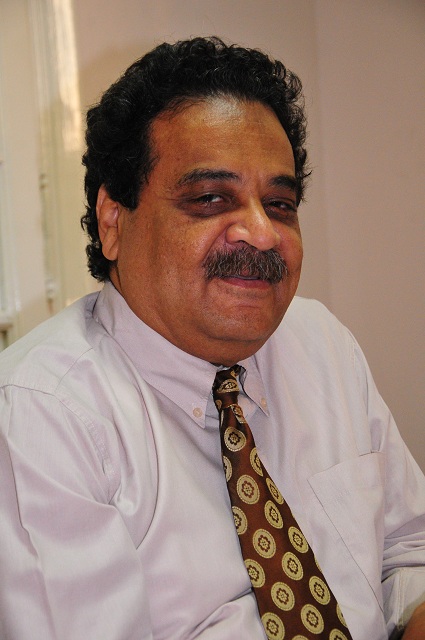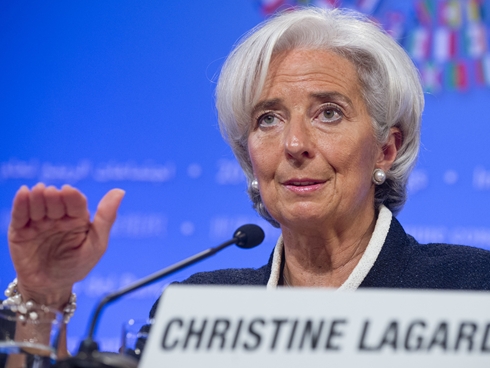 I recently claimed in a previous article, to all those who were interested in the progress of political dialogue within Egypt, that the country’s military would “not seek to return and inject itself back into politics, and will not seek to once again directly administer the affairs of our country”. I was pleased to see similar assertions made by Dr. Muhammad Qadri Said from Al-Ahram on 18 March, and a number of army officials commenting on the state of politics in Egypt.
I recently claimed in a previous article, to all those who were interested in the progress of political dialogue within Egypt, that the country’s military would “not seek to return and inject itself back into politics, and will not seek to once again directly administer the affairs of our country”. I was pleased to see similar assertions made by Dr. Muhammad Qadri Said from Al-Ahram on 18 March, and a number of army officials commenting on the state of politics in Egypt.
I was pressed to explain at the beginning of the article that the army’s entry into politics had not in fact begun on January 25th 2011, and that it did not end with the rise of the Muslim Brotherhood to power. What I also did not say was that the army had not previously played a role in Egyptian political life, or that they would not continue to do so after the triumph of President Mohamed Morsi at the polls in June 2012.
It goes without saying that the army still has a hand in politics, even as they remain within their barracks, but let me move on and make the case that the events of January 25th were not the spark that led the military as an institution to finally enter into Egypt’s political fray, but rather that which started the process of eventually forcing them to withdraw from it.
With the exception of the period from 28 January to the election of President Morsi, we can say that the previous system upon which the regime was built, with the military co-operating with the country’s security forces in order to maintain power and stability, a system which had existed and been put in place since 1952, died on January 25th, or at the very least demonstrated that it was in its final throes of life.
It is true of the 1952 revolution that its leadership committee did not last long, and that the July officers were very early on stripped of their military attire, and also that the country’s armed forces were not responsible for directly administering the affairs of the country during the presidencies of Nasser, Sadat and Mubarak.
However any accurate analysis of the time will show that during this era the military and the country’s security forces did co-operate to fill the ranks of state institutions with their loyal cadres, all the way down from the President of the Republic to the country’s governors, mayors and heads of local authorities and ministries.
Although the power and numbers of police ranks may have begun to swell during this time, ultimate authority always rested with the military. It was much to the army’s outrage, then, when the former sought to align themselves with Gamal Mubarak and support the idea of presidential succession; for this reason, the military sought to align themselves with people after 25 January.
That being said, upon Mubarak’s announcement that he would no longer seek to appoint his son Gamal as his successor, the army considered the revolution, which they had taken part in, to be a success, and as a result, over. All that followed in the way of continued clashes and strikes probably came as a surprise to the army, and was not something that they had expected.
However, was the army’s rejection of Gamal Mubarak merely a rejection of the notion of presidential succession? Or was it also the rejection of the man himself? Or was the army’s refusal to accept Gamal the result of him being a civilian leader who came from outside the ranks of the military, as his supporters constantly sought to emphasise before the revolution? Or did the army’s rejection of Gamal stem from their genuine desire to build a new, democratic regime in Egypt?
Dr. Qadri Said recently stated that “the army entered into Egypt’s political fray after the outbreak of the January 25th revolution on the side of democracy and reform, seeking to implement change against the will of counter-revolutionary religious movements”. Perhaps I don’t have enough information to comment on such claims, however I doubt that after 28 January that the army truly sought to implement democracy throughout Egypt, and only gradually came around to the idea of doing so in stages.
Initially the army came out onto the street to support the protesters out of their desire to prevent presidential succession. Whether it was for one of the many reasons listed above we don’t know, however we can add that Gamal and his supporters were staunch capitalists whose interests did not exactly match up with Egypt’s armed forces, who largely saw themselves as the heart and nucleus of the Egyptian state. The introduction of large-scale economic liberalism into Egyptian society was viewed as a hostile ideology that would chip away at their influence within the country’s bureaucracy.
The army sought not only to prevent the phenomenon of presidential succession, but also furthermore ensure the loyalty of the country’s largest and most organised political force, the Muslim Brotherhood, in order to maintain the structure of the previous regime, only with a civilian face.
Agreements reached between the army and Muslim Brotherhood were conducted with a great sense of urgency, with the former feeling pressure to put in place a system that would preserve their role as the primary hegemon within Egypt, even if this meant accepting terms that they would have previously rejected.
The army would have been willing early on to accept a Muslim Brotherhood president such as Salim al-Awa, as described in Abd al-Athim Hamid’s book The Lost Revolution. Or the army could have accepted the nomination of Omar Suleiman, and all that that would have brought with it in the way of preserving the previous regime in all its previous components.
However the army would be going against its inherent interest by confronting the Brotherhood, as doing so would have would have engendered a large amount of popular discontent from large swaths of Egypt’s population. However in my opinion, it was not just the threat of popular revolt, or the army pursuing its interest that led them to support the rise of Islamists to power, but rather pressure from the United States and Europe who, from the outset of the revolution, sought to hand power in Egypt over to the Muslim Brotherhood.
The army’s pursuance of a balance of power, which included appeasing and accommodating the interests of Washington, demonstrates to us that what we currently find ourselves in is a transitionary stage, led by the Brotherhood, which will end as soon as the country’s bureaucracy is revived and brought back to power.
This will then see the army once again continue to administer the country from behind the scenes. Hopefully, upon completion of this stage, we can begin building the foundation upon which we can establish a new, democratic regime.
The army today is one of many factions within Egypt that will help determine the country’s future. That being said, if those who would seek to revive the old regime are successful, then the army of course would not be innocent and could be partially blamed. However again, this blame should not be the same as that which was leveled against the military for acts they committed after 28 January 2011, when they were in direct control of the country.
We hope, similar to Dr. Qadri Said, that the army will begin working towards real democratic reform, and that true military and civilian dialogue can be established to correct the wrongs of the past and work towards accomplishing Egypt’s national interest. Hopefully, we will see the rise of a true, transparent, democratic state in Egypt, with an elected parliament, whose members will have full access to state information, both public and classified.



